UN faces a crisis, but its new secretary general is unlikely to upset tradition, challenge the permanent members.
21 July, Indian Express
The United Nations Security Council (UNSC) will conduct the first straw poll to elect the ninth secretary general of the UN today. The session around the horseshoe table will be presided over by Japan, which holds the UNSC’s rotating presidency for the month of July. Each of the 15 members will have the choice of indicating “encourage”, “discourage”, or “no opinion” against the names of the candidates.
Why is this election important? The UN, established in 1945 to save succeeding generations from the scourge of war, is, on the occasion of its 70th anniversary, facing a severe crisis. Threats to international peace and security are more serious today than at any time since its inception. The “use of force”, with or without the UNSC’s authorisation, and the arming of rebels has resulted in much turmoil. Iraq 2003, Libya 2011, the ongoing crisis in Syria, and Ukraine 2014 constitute, at the very least, a severe indictment of the UN and, at its very core, the functioning of the security council.
One could argue that this is a mess entirely of our own making. It is after all the member states, whose policies are ultimately responsible for the rise of the ISIS and the ever-increasing terrorist threats. Could a new secretary-general make a difference? Kofi Annan in 2003 and the recent Chilcot report characterised the military actions in Iraq as lacking legal sanction, and correctly so. The job description should perhaps specify, that along with the requisite experience, she/he should have no hesitation to stand up, disagree and point fingers.
The situation has, if anything, gone from bad to worse. A security council hamstrung by the exercise of vetoes even in situations of mass atrocities, member states accused of war crimes buying their way out after being publicly incriminated, and an overall atmosphere of impunity, poses an existential threat to the UN. Unless rectified, the UN runs the risk, not of disappearing — multilateral institutions seldom wither away — but suffering a thousand cuts and ultimately becoming the world’s largest non-governmental organisation. At stake is the unique and unparalleled convening power of the UN, which carries both moral and legal weight.
Would the world be worse off without the UN? Most certainly, yes. Without the UN, another world body would need to be recreated. The UN has done stellar work in the normative field, especially on human rights, gender equality and sustainable development. The International Court of Justice and the International Criminal Court are the obvious institutional examples in matters pertaining to the rule of law. Without the UN, the international order will be vulnerable to domination and manipulation by a few.
There are twelve declared candidates in the field for the post, many with truly impressive credentials. Irina Bokova of Bulgaria, UNESCO’s DG since 2001; Helen Clark, former PM of New Zealand and administrator of the UNDP since 2009; Costa Rica’s Christiana Figueres, the executive secretary of the UNFCCC since 2016; Natalia Gherman, foreign minister of Moldova; Antonio Guterres, former PM of Portugal and the UN high commissioner for refugees, 2005-15; Vuk Jeremic, former Serbian foreign minister and president of the UN General Assembly 2012-13; Srgjan Kerim, former foreign minister of Macedonia and a former president of the general assembly; the Slovakian foreign minister, Miroslav Lajcak; Igor Luksic, former PM and current foreign minister of Montenegro; Argentina’s foreign minister, Susana Malcorra, who was till recently chef de cabinet to the secretary general, Ban Ki-moon; Croatia’s foreign minister, Vesna Pusic; and Danilo Turk, former president of Slovenia and the assistant SG of the UN.
According to the principle and system of geographic rotation in the UN, the ninth secretary-general should preferably be from Eastern Europe. Eight of the twelve candidates are East European. There is also a groundswell in favour of a woman SG.
Six of the twelve are women. An ideal combination, thus, would be a woman from East Europe. Three of the twelve meet that criterion.
An interesting innovation introduced for the election of the ninth SG is that candidates will take part in a “beauty parade” at the GA. But all said and done, it will be “business as usual”. The GA will only be left to endorse the choice of the security council. Since the permanent members of the council wield a veto, the candidate finally selected must be acceptable to the US and Russia, two countries that have not hesitated to use the veto in the past. This alone increases the chances of the SG being more secretary and less general.
It is unlikely that any of the twelve candidates will establish a decisive or even a commanding lead in the first straw poll. It is equally conceivable that none of them will meet the “acceptability cut” of the permanent members. A final choice is likely to emerge by October, when Russia will hold the rotating presidency of the council.
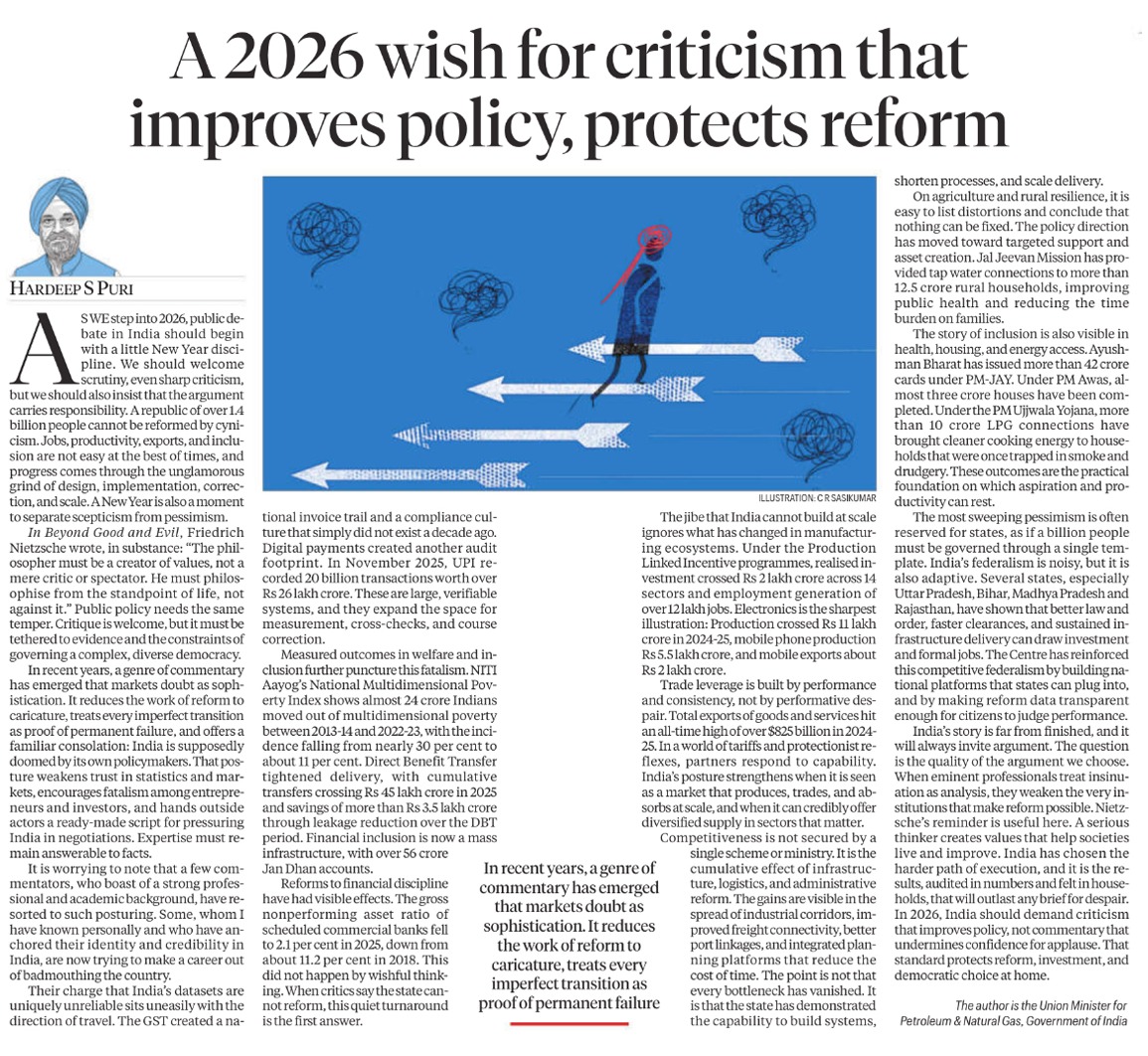
Our democracy benefits by criticism, but not by motivated fatalism by some “experts”, who seem more guided by their politics r...
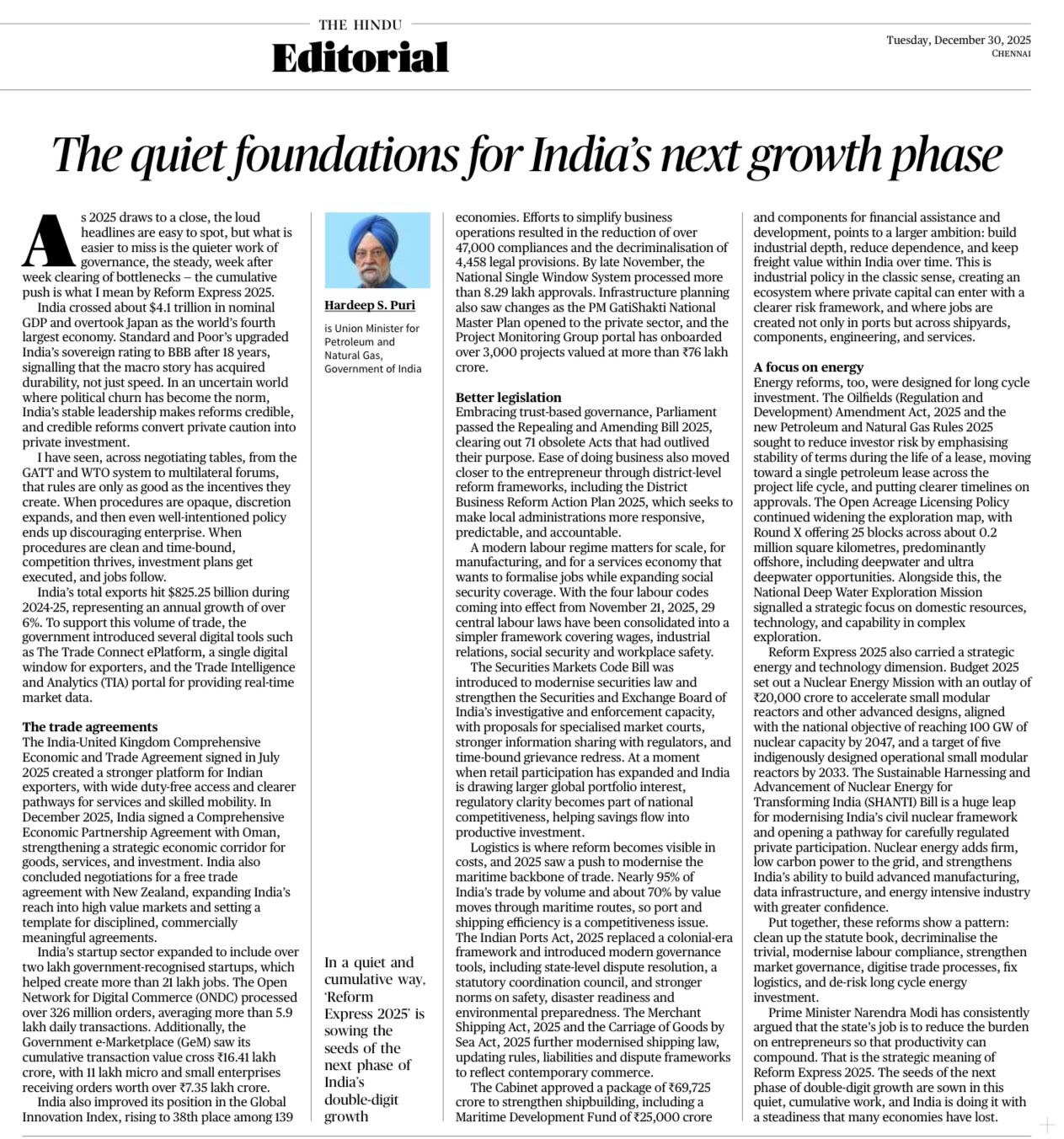
The quieter work of governance, the steady, week after week clearing of bottlenecks - this cumulative push is what I mean by Refo...
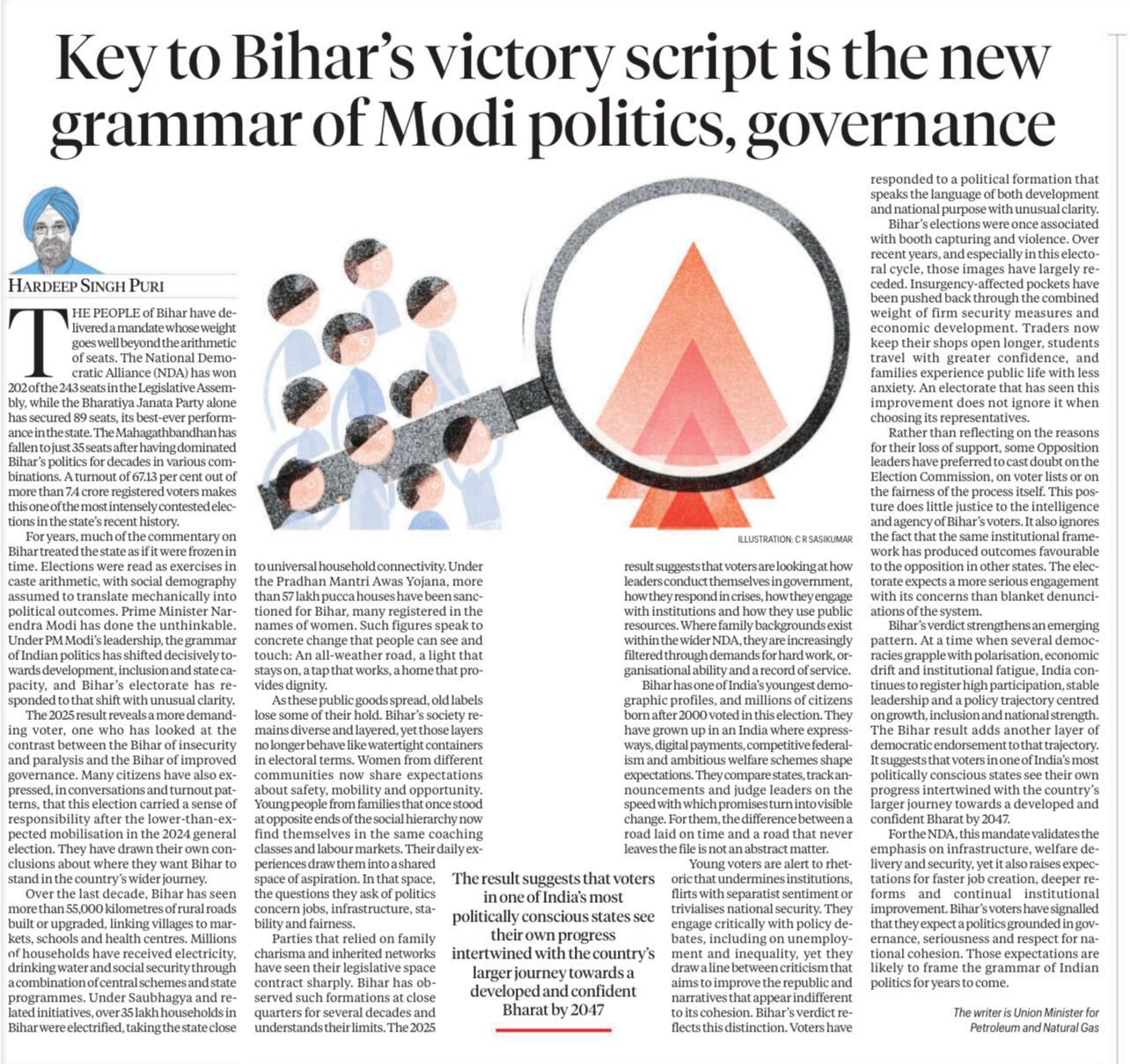
PM Sh Narendra Modi Ji has done the unthinkable in Bihar and it will change the grammar and lexicon of Indian politics for the ti...
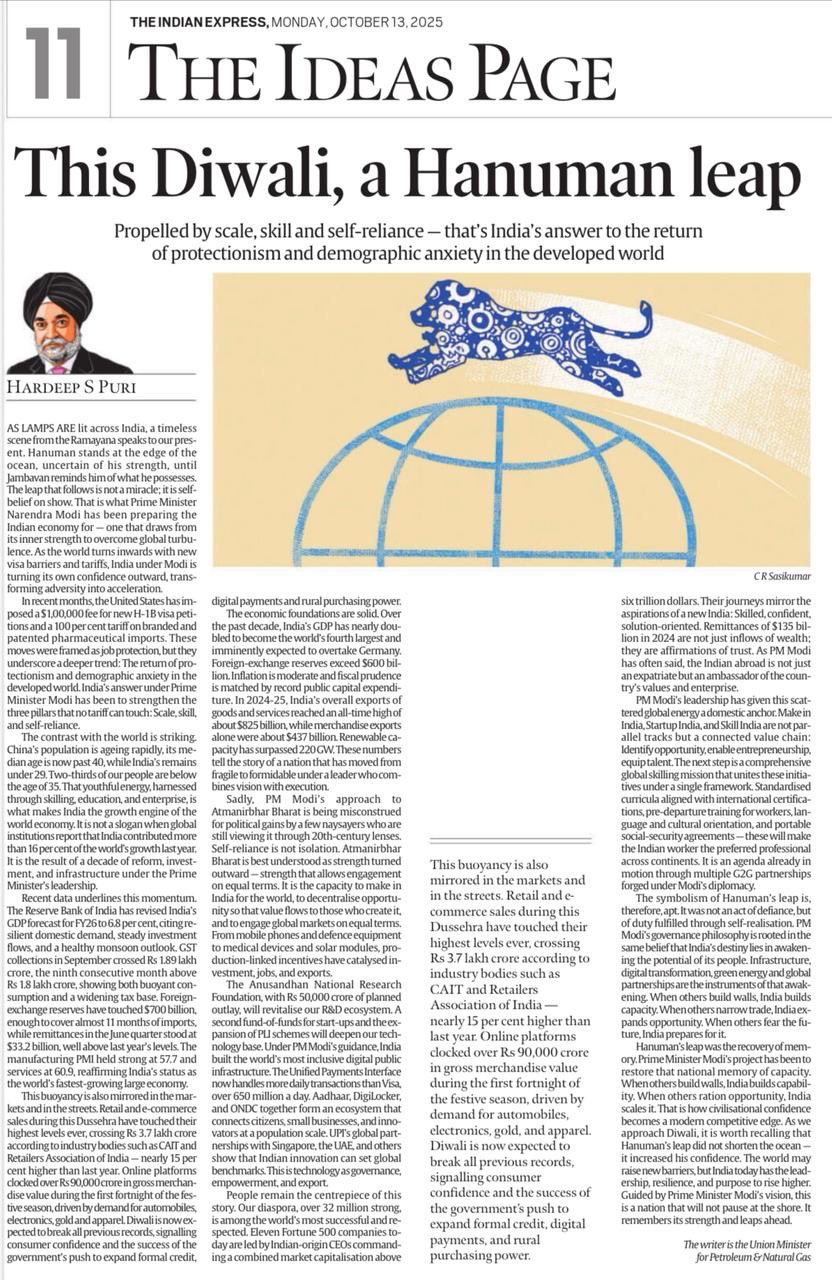
As the world passes through a period of geopolitical turmoil and uncertainty, India, under the visionary & decisive leadership of ...
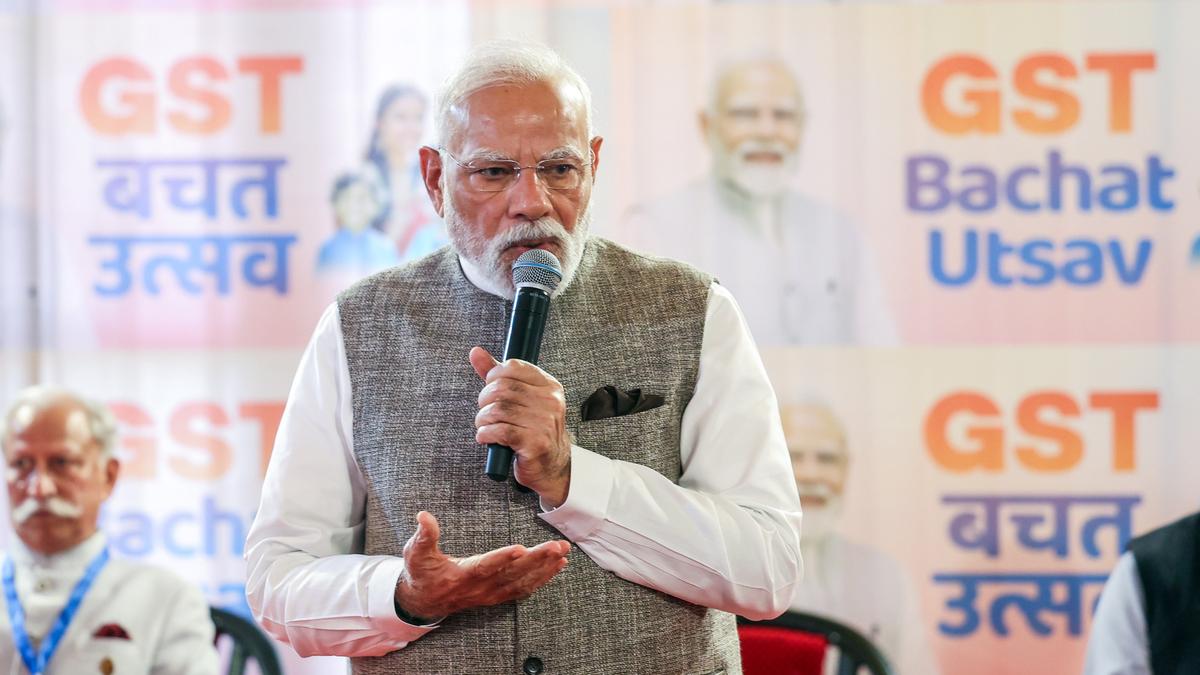
The Prime Minister’s professionalism and work ethic are what make the difference on the ground Praise has been showered on Pr...
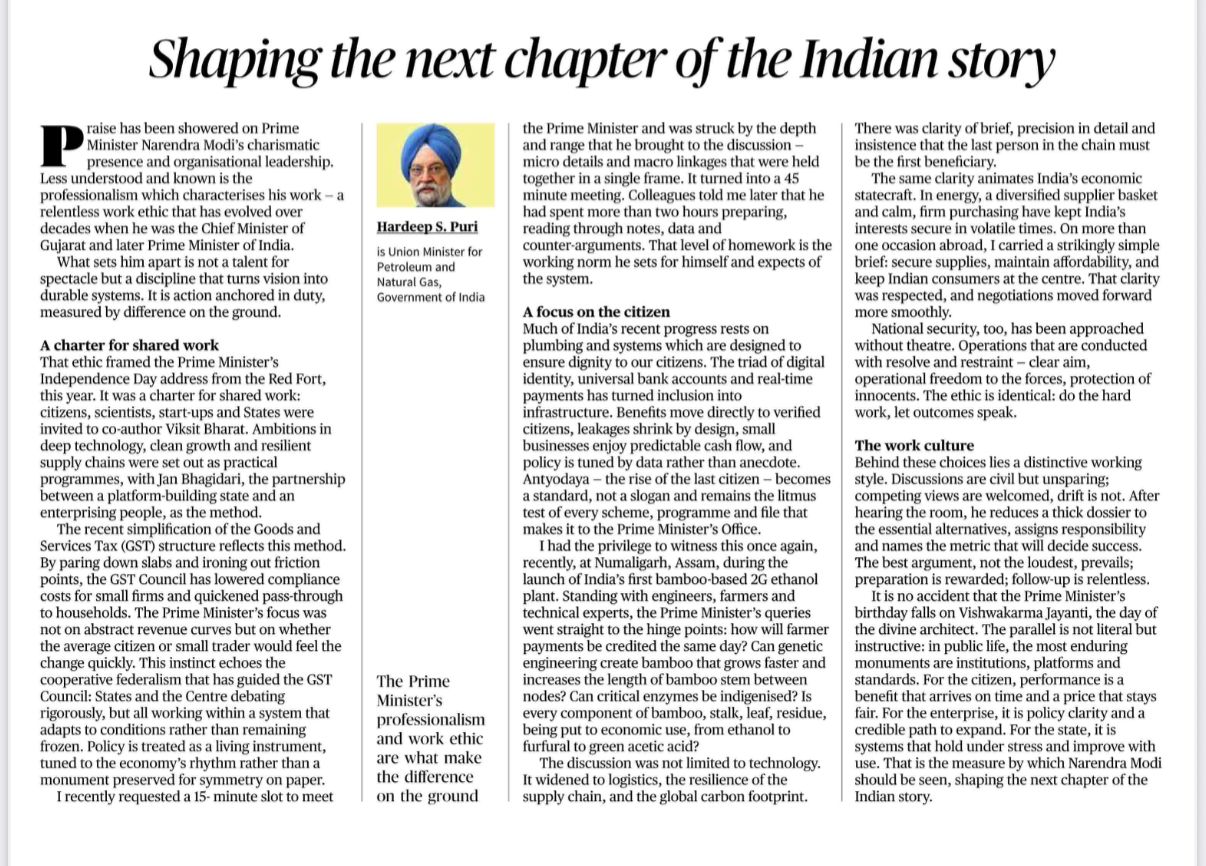
Shaping the next chapter of the Indian story!...

Indian cities are again on that path to being modern yet humane, ambitious yet inclusive, global in outlook yet rooted in our valu...

India’s fact-rich story of resilience, growth and energy security will silence the ‘global doubters’ who call it a ‘dead e...

The test of a great civilisation lies in its crucible moments. When doubted in the past, India responded with Green Revolutions, I...